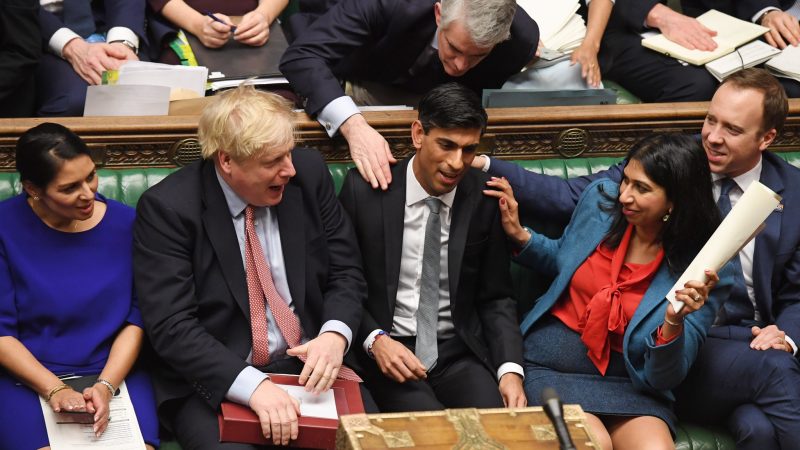
To the fury of House of Commons Speaker Lindsay Hoyle, the government continues to release highlights from Wednesday’s Budget ahead of time. The latest favourable headline divorced from context is that Rishi Sunak will end the public sector pay freeze. It is called a ‘freeze’, and described as a “pause” by the Treasury, but we should keep in mind that inflation means this has really been a pay cut. And that brings us to the announcement of an increase: it needs to be above inflation – predicted by the Bank of England to rise to over 4% by the end of the year and possibly 5% next year – for the millions of public sector workers to be any better off. Even if Sunak’s offer exceeds that figure, will he give departments extra money, or force them to cut services to fund the pay rise?
The other policy on pay that the government would like you to hear about is an increase in the national minimum wage. For over-23s, it is set to rise from £8.91 to £9.50. (The lower bands for young people are going from £8.36 to £9.18 for 21-22, £6.56 to £6.83 for 18-20, £4.62 to £4.81 for under-18s.) So why is Labour not impressed, dismissing it as “underwhelming”? While the government says a full-time worker on the lowest pay possible will get a boost of more than £1,000 a year, this figure does not take into account inflation or how many lose benefits as their incomes go up. Labour has calculated that someone affected by the Universal Credit cut, National Insurance hike and freeze in income tax personal allowance will still be £807 worse off from April.
Labour, the TUC, Usdaw and others have responded to the minimum wage news by reiterating the call for £10. But we know that this demand has been controversial in the labour movement – not least with the GMB trade union, which saw its general secretary tell Keir Starmer at conference that £10 was “embarrassing”. The GMB is backing strikes in the “fight for fifteen” of care workers in Scotland right now. And when Andy McDonald quit the shadow cabinet, he said it was because he had been asked to argue against £15. Conference voted for the more ambitious minimum wage increase and the Labour left warned that the Tories would soon overtake the leadership’s call for £10. We now know that by the time of the next election, the government’s ‘national living wage’ may exceed £10.
Elliot has outlined here how the minimum wage increase is underwhelming, as Labour says. But he also notes that Tory rhetoric on pay, if not the reality, is closing the gap between itself and Labour (combined with Boris Johnson’s “high-skill, high-wage economy” line). Can the Conservatives appear to the electorate to be both responsible with public spending and as fair as possible in their management of the economy in difficult times? Or will people feel in their pockets that the government is talking the talk but not walking the walk?
Before you go: SME4Labour will hold its fourth gala and Labour excellence awards night on Monday 8th November at the Park Plaza Westminster Hotel. You can find more information about the event here. If you’re interested in buying a seat or a table, you can find tickets here. LabourList will receive the profits from any tickets sold to those using our voucher code LABOURLIST.
And another thing: if you’re interested in joining the LabourList team, we are now advertising for a new reporter. Find details of the job and how to apply on LabourList here.
Sign up to LabourList’s morning email for everything Labour, every weekday morning.



More from LabourList
‘Labour’s quiet quest for democratic renewal’
‘Labour promised to make work pay. Now it must deliver for young people’
‘Council Tax shouldn’t punish those who have the least or those we owe the most’